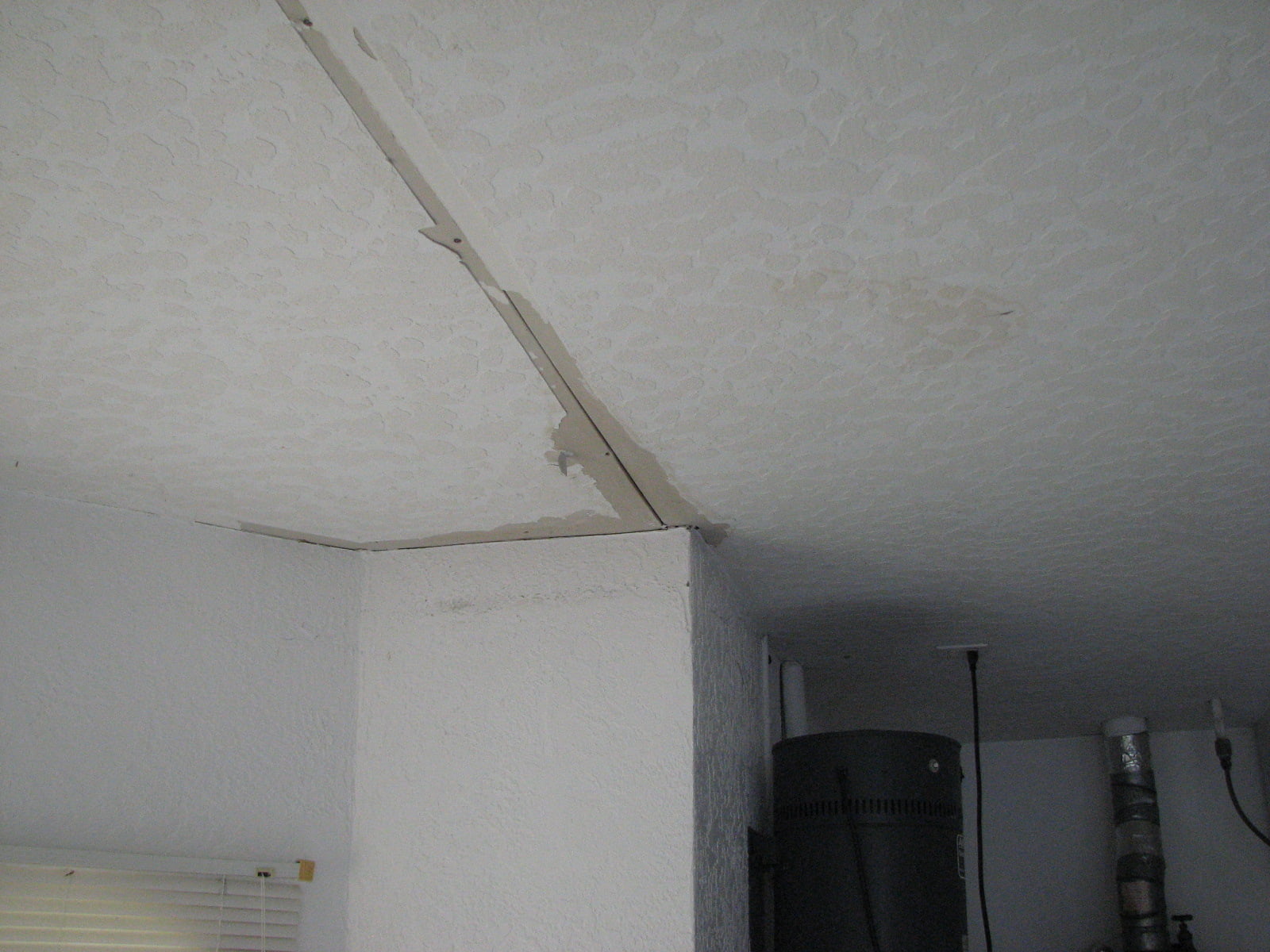How to Repair Water Damaged Ceilings?

The water damage to the ceiling might be caused by the leaking rooftop, broken water pipe or some other sources of water. In case two-story home, it can be caused by the toilet or leaky shower, trickling onto the roof beneath. This additionally happens where there is a kettle, for warming, that has capacity tanks as well as pipes in the upper room. Whatever the reason, repairs should be made as fast as could be allowed.
It begins with a little stain, and afterward rapidly transforms into a gigantic unattractive air bubble. In case it is not treated, then the water damaged ceiling may transform into greater chaos.
However, do not worry about that!
You can keep that from occurring by repairing your damaged part of water ASAP.
Here's the manner by which to complete it:
As a matter of first importance,
you should ensure you have every one of the things that might be important to repair your water damage. There are some procedures to ensure that you don't demolish your floor alongside settling the ceiling. Do not try this independently, considering mishaps can happen. In the event that nobody is near, it can mean a great deal of inconvenience to you.
There are a couple of things that you require, so make sure to have them close-by:
- Drywall or either some other material in order to replace your water damaged part
- Ladder
- Tarp or either covering in order to protect your floor
- Vacuum
- Fans
- Paint along with the paintbrushes as well as rollers
- Sandpaper
- Primer
- Joint compound
- Flat hand tools such as putty knife and scraper
- Search the source
The most important thing is that you should do is to find the wellspring of the spillage. You can discover a few focuses. The atmosphere, for one, may edify you regarding the territory of spillage.
For instance, in case the leakage appears just when it's snowing or raining, then the source may be an obstructed canal, split shingles, or either an ice dam develops.
Water damaged that keeps on exacerbating in order to worsen amid dry months are most likely because of the busted pipe.
In any case, it will be pointless to settle your water damaged without fixing leakage source. You will simply wind up spending more cash over a long time.
Remove the damaged ceiling
When your leakage source has been fixed, the following stage is to fix the section for your water damage repair. Ensure that you have the gloves, safety goggles, and mask on.
Assure the area particularly basically below to the damaged by putting the plastic canvas as well as the pail over the covering of plastic in case you need to exhaust the bowed roof.
In case the place has swelled out, it implies the water pooling is on the above. Painstakingly jab it alongside the screwdriver.
In case your water damaged section has been bowed amid your ceiling’s joists because of an excessive amount of water, at that point, it is shrewd to simply expel it. Apply this by utilizing a wrecking or destroying the bar.
Dry your area
Ensure the whole section is totally dry and any mold development has been dealt with before you begin the water damage repair process.
Utilize fans to accelerate the procedure. Leave your windows and entryways open for good air circulation too.
Fix it up
For the best treatments, begin by scratching offs the paint on the influenced region. Then, spray that part with the primer. Enable it to dry prior to putting a new layer of the paint.
For the entire replacement, put another wallboard sheet over the part that has prepared. In case you're experiencing serious difficulties appearing, then protect it along with the temporary furring strips prior to place the roof screws.
Cover your creases with the drywall tape prior to applying the joint compound. When a joint compound is totally dry, then smooth it with the assistance of sandpaper. Apply the primer wait for it to dry, and afterward cover it alongside the similar color paint.
Remember that not every influenced part should be evacuated. But, this ought to be inspected by an expert first.
Here you can find several factors which you should consider:
- The water isn't debased
- There is no confirmation of mold development
- The damaged part is basically stable
The key is here in order to act instantly before the issue intensifies. Keep in mind that it's constantly less expensive to treat your water damaged ceilings once the issue has quite recently begun.






